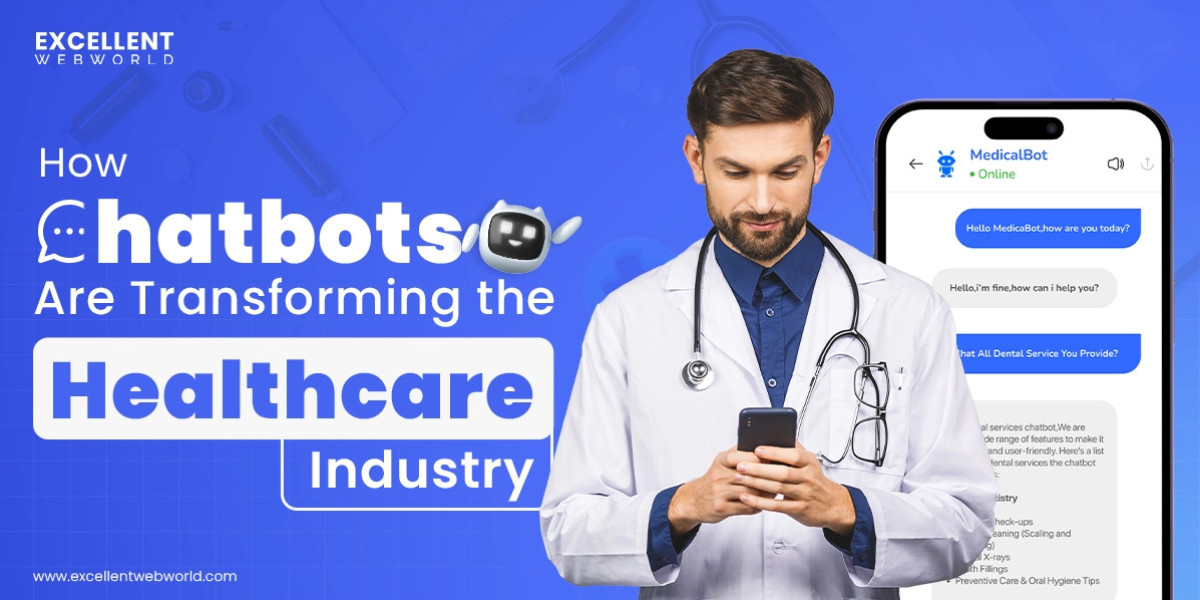These AI-driven tools are increasingly being used across various sectors, but perhaps their most impactful application is in mental health care. With growing demand for accessible, efficient, and affordable mental health support, AI chatbots are playing a key role in addressing these challenges. In this article, we will explore the benefits of AI chatbots in the healthcare industry, particularly in mental health care.
1. Increased Accessibility to Mental Health Services
One of the primary advantages of AI chatbots in mental health care is their ability to provide 24/7 accessibility. Mental health issues do not adhere to business hours, and people often need support outside traditional office hours. With chatbots, patients can access mental health support at any time, whether it’s late at night or during weekends. This constant availability ensures that individuals struggling with mental health conditions can get help when they need it most, reducing the barriers to accessing care.
Chatbots can assist in providing immediate responses to common mental health concerns such as anxiety, depression, and stress, offering a first step toward professional treatment. By guiding users through basic coping techniques or self-care strategies, AI chatbots can help prevent the escalation of mental health issues, acting as a supportive bridge before a person seeks more formal assistance.
2. Cost-Effective Solution for Mental Health Care
The increasing demand for mental health care professionals often leads to long waiting times and financial barriers for patients. AI chatbots can alleviate some of these challenges by offering an affordable and scalable solution. They can provide general advice, emotional support, and cognitive behavioral therapy (CBT) techniques at a fraction of the cost of in-person therapy sessions.
By incorporating AI chatbots in the healthcare industry, mental health services can be delivered more efficiently and cost-effectively. Chatbots reduce the need for human intervention in cases that do not require intensive therapy, enabling professionals to focus on more severe cases. As a result, AI chatbots help reduce the financial strain on healthcare providers and patients alike.
3. Anonymity and Privacy in Mental Health Support
Stigma around mental health remains a significant barrier to seeking help, as many individuals fear judgment or discrimination when discussing their issues. AI chatbots offer a level of anonymity and privacy that traditional face-to-face consultations may not. Users can feel more comfortable discussing their thoughts, feelings, and symptoms without the fear of being judged by another person.
The use of AI chatbots in the healthcare industry helps patients maintain their confidentiality, allowing them to open up about sensitive issues. This anonymity can encourage individuals to seek help who might otherwise avoid professional care due to fear of stigmatization.
4. Personalized and Tailored Mental Health Assistance
AI chatbots are capable of offering personalized mental health support based on user input and behavior patterns. By analyzing responses, AI systems can identify individual needs and provide tailored advice, coping mechanisms, or mental health resources. For example, a chatbot might offer different relaxation techniques depending on whether a user is dealing with anxiety, depression, or insomnia.
With advancements in natural language processing (NLP), AI chatbots in healthcare are becoming increasingly adept at understanding and responding to a variety of mental health symptoms. They can guide individuals through guided meditations, provide mindfulness exercises, and suggest customized content that aligns with their emotional and psychological state.
5. Reducing the Burden on Mental Health Professionals
Mental health professionals are in high demand, with many facing overwhelming caseloads. AI chatbots can alleviate some of this burden by handling initial screenings, providing basic therapy, and assisting with follow-up care. These chatbots can also remind patients of appointments, encourage adherence to treatment plans, and track their progress.
By taking care of administrative tasks and offering initial counseling, AI chatbots free up healthcare professionals to focus on more complex cases that require specialized expertise. This collaboration between chatbots and human therapists results in more efficient mental health care delivery.
6. Supporting Preventative Mental Health Care
Preventative care is a key component of a well-rounded healthcare system, and AI chatbots can play a critical role in early intervention. Chatbots can monitor users' mental health by tracking their behavior, mood, and responses to various stimuli. By engaging in regular check-ins, AI systems can detect early signs of mental health issues such as depression, anxiety, or stress.
Early intervention through AI chatbots can significantly reduce the severity of mental health conditions and prevent them from developing into more chronic or severe issues. As part of a proactive approach, these chatbots help users build resilience and practice mental wellness habits that promote overall well-being.
7. Increased Engagement Through Interactive Support
AI chatbots can offer a more engaging experience compared to traditional mental health tools. By using interactive methods such as quizzes, exercises, and real-time feedback, chatbots help keep patients engaged and motivated to pursue mental wellness. This interactive approach fosters a sense of involvement, empowering users to take control of their mental health.
With gamified elements, reminders, and personalized responses, AI chatbots create a sense of accountability and commitment to improving mental health. This high level of engagement helps users feel more invested in their recovery, leading to better long-term outcomes.
Conclusion
AI chatbots are transforming the healthcare industry, especially in the realm of mental health care. By offering 24/7 support, reducing costs, ensuring privacy, and delivering personalized care, AI-powered chatbots are improving access to mental health services for individuals who might otherwise face barriers. These advancements are not only beneficial for patients but also help reduce the pressure on healthcare professionals, allowing them to focus on more complex cases. As AI technology continues to evolve, chatbots in healthcare will undoubtedly play an even more significant role in shaping the future of mental health care delivery, ensuring that more individuals can receive the support they need when they need it most.







